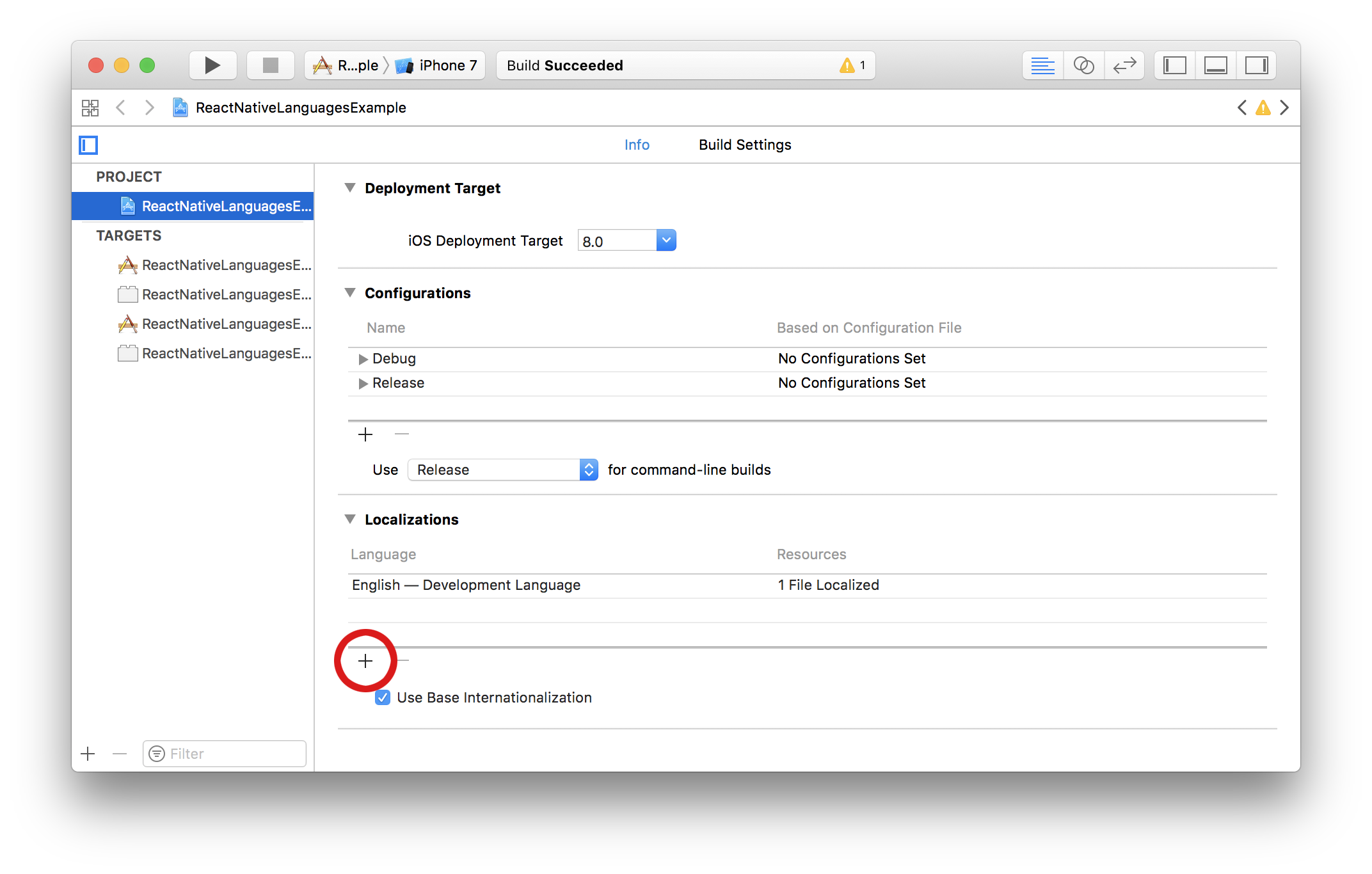Package Exports
- react-native-localize
- react-native-localize/dist/commonjs/index.js
- react-native-localize/dist/module/index.js
This package does not declare an exports field, so the exports above have been automatically detected and optimized by JSPM instead. If any package subpath is missing, it is recommended to post an issue to the original package (react-native-localize) to support the "exports" field. If that is not possible, create a JSPM override to customize the exports field for this package.
Readme
🌍 react-native-localize
A toolbox for your React Native app localization.

Funding
This module is provided as is, I work on it in my free time.
If your company uses it in a production app, consider sponsoring this project 💰. You also can contact me for premium enterprise support, help with issues, prioritize bugfixes, feature requests, etc.
Support
| package name | version | react-native version |
|---|---|---|
| react-native-localize | 3.0.0+ | 0.70.0+ |
| react-native-localize | 2.0.0+ | 0.60.0+ |
Setup
$ npm install --save react-native-localize
# --- or ---
$ yarn add react-native-localizeDon't forget to run pod install after that !
Web support
This package supports react-native-web. Follow their official guide to configure webpack.
Windows Support
Because this package targets React Native 0.70.0+, you won't need to link it manually. For more information about autolinking and manual linking, follow the official guide
Basic usage example
import { getCurrencies, getLocales } from "react-native-localize";
console.log(getLocales());
console.log(getCurrencies());API
getLocales()
Returns the user preferred locales, in order.
Method type
type getLocales = () => Array<{
languageCode: string;
scriptCode?: string;
countryCode: string;
languageTag: string;
isRTL: boolean;
}>;Usage example
import { getLocales } from "react-native-localize";
console.log(getLocales());
/* -> [
{ countryCode: "GB", languageTag: "en-GB", languageCode: "en", isRTL: false },
{ countryCode: "US", languageTag: "en-US", languageCode: "en", isRTL: false },
{ countryCode: "FR", languageTag: "fr-FR", languageCode: "fr", isRTL: false },
] */getNumberFormatSettings()
Returns number formatting settings.
Method type
type getNumberFormatSettings = () => {
decimalSeparator: string;
groupingSeparator: string;
};Usage example
import { getNumberFormatSettings } from "react-native-localize";
console.log(getNumberFormatSettings());
/* -> {
decimalSeparator: ".",
groupingSeparator: ",",
} */getCurrencies()
Returns the user preferred currency codes, in order.
Method type
type getCurrencies = () => string[];Usage example
import { getCurrencies } from "react-native-localize";
console.log(getCurrencies());
// -> ["EUR", "GBP", "USD"]getCountry()
Returns the user current country code (based on its device locale, not on its position).
Method type
type getCountry = () => string;Usage example
import { getCountry } from "react-native-localize";
console.log(getCountry());
// -> "FR"Note
Devices using Latin American regional settings will return "UN" instead of "419", as the latter is not a standard country code.
getCalendar()
Returns the user preferred calendar format.
Method type
type getCalendar = () =>
| "gregorian"
| "buddhist"
| "coptic"
| "ethiopic"
| "ethiopic-amete-alem"
| "hebrew"
| "indian"
| "islamic"
| "islamic-umm-al-qura"
| "islamic-civil"
| "islamic-tabular"
| "iso8601"
| "japanese"
| "persian";Usage example
import { getCalendar } from "react-native-localize";
console.log(getCalendar());
// -> "gregorian"getTemperatureUnit()
Returns the user preferred temperature unit.
Method type
type getTemperatureUnit = () => "celsius" | "fahrenheit";Usage example
import { getTemperatureUnit } from "react-native-localize";
console.log(getTemperatureUnit());
// -> "celsius"getTimeZone()
Returns the user preferred timezone (based on its device settings, not on its position).
Method type
type getTimeZone = () => string;Usage example
import { getTimeZone } from "react-native-localize";
console.log(getTimeZone());
// -> "Europe/Paris"uses24HourClock()
Returns true if the user prefers 24h clock format, false if they prefer 12h clock format.
Method type
type uses24HourClock = () => boolean;Usage example
import { uses24HourClock } from "react-native-localize";
console.log(uses24HourClock());
// -> trueusesMetricSystem()
Returns true if the user prefers metric measure system, false if they prefer imperial.
Method type
type usesMetricSystem = () => boolean;Usage example
import { usesMetricSystem } from "react-native-localize";
console.log(usesMetricSystem());
// -> trueusesAutoDateAndTime()
Tells if the automatic date & time setting is enabled on the phone. Android only
Method type
type usesAutoDateAndTime = () => boolean | undefined;Usage example
import { usesAutoDateAndTime } from "react-native-localize";
console.log(usesAutoDateAndTime()); // true or falseusesAutoTimeZone()
Tells if the automatic time zone setting is enabled on the phone. Android only
Method type
type usesAutoTimeZone = () => boolean | undefined;Usage example
import { usesAutoTimeZone } from "react-native-localize";
console.log(usesAutoTimeZone());findBestAvailableLanguage()
Returns the best language tag possible and its reading direction (⚠️ it respects the user preferred languages list order, see explanations). Useful to pick the best translation available.
Method type
type findBestAvailableLanguage = (
languageTags: string[],
) => { languageTag: string; isRTL: boolean } | void;Usage example
import { findBestAvailableLanguage } from "react-native-localize";
console.log(findBestAvailableLanguage(["en-US", "en", "fr"]));
// -> { languageTag: "en-US", isRTL: false }Examples with @formatjs/intl
Browse the files in the /example directory.
How to update supported localizations (iOS)
You can add / remove supported localizations in your Xcode project infos:

How to test your code
Because it's a native module, you need to mock this package.
The package provides a default mock you may use in your __mocks__/react-native-localize.js or jest.setup.js.
import localizeMock from "react-native-localize/mock";
jest.mock("react-native-localize", () => localizeMock);






